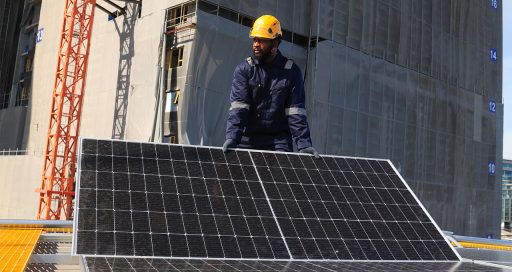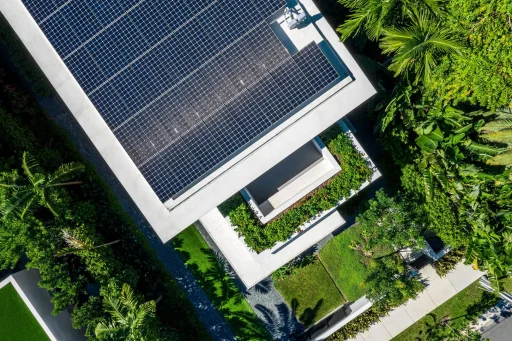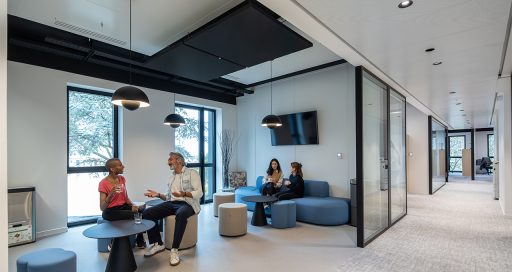BACS decree makes it impossible to bypass building management systems
Reading time: 5 min
Following the publication in April 2023 of the Building Automation and Control Systems decree, it is now mandatory for commercial buildings to install a building management system, and more specifically an energy consumption management system. Pierre Megret, smart building project manager at VINCI Energies Building Solutions, explains the provisions of the decree.
With climate change gathering speed, the energy transition is now more than ever a priority for France as it pursues a CO2 emission reduction policy and its goal to achieve carbon neutrality by 2050. Commercial property, which alone accounts for a third of energy used in France, has been on the government’s radar since the Grenelle II Law of 2010.
Today the new so-called BACS (Building Automation and Control Systems) decree requires the sector to step up its efforts to promote energy efficiency. The law, a first version of which was published on July 20th 2020 and amended on April 7th 2023, is in line with the Tertiary Eco-Energy scheme (Dispositif Eco Energie Tertiaire, DEET) of 2019, more commonly referred to as the tertiary decree, which sets consumption reduction targets for 2030, 2040 and 2050.
A real absence of BMS in commercial property
The purpose of the BACS decree is not to impose new reduction thresholds but to accelerate the rollout of automation and control systems for technical facilities, or as they tend to be known building management systems (BMS). This will meet an urgent need. For although the tertiary decree applies to 81% of stock in France (in other words to buildings with a surface area of more than 1,000m²), only 6% of it is equipped with BMS.
“As far as building automation and control is concerned, everything or almost everything remains to be done.”
Worse still, observations made by experts operating in systems engineering, installation and maintenance suggest that the vast majority of monitoring tools do not work. This means that as far as building automation and control is concerned, everything or almost everything remains to be done.
So which buildings are covered by the BACS decree? While the tertiary decree focuses on surface area criteria, BACS is based on the effective rated output of heating and cooling systems.
In new buildings, all non-residential structures (offices, shops, hotels, educational establishments, health facilities and public buildings) with a generation capacity of more than 70kW will need to adopt a BMS by April 8th 2024. In existing buildings, structures whose output exceeds 290kW will need to have one by January 1st 2025 and those with an output of more than 70kW by January 1st 2027.
The systems to be installed concern all assets likely to have a direct impact on energy consumption: heating, air conditioning, ventilation, domestic hot water, lighting, power generation or any other system combining one or more of these.
Obligation of means not results
Although the BACS decree is imposed by law, it includes an obligation of means not results. It is therefore intended to support energy efficiency strategies that move towards the performance levels outlined in the EN ISO 52120-1 standard, which lists building automation and control systems in four categories:
- Category A: BAC and BMS functions with high energy performance.
- Category B: advanced BAC functions and some specific BMS functions.
- Category C: standard BAC functions.
- Category D: energy inefficient BAC functions.
Level C and above qualify for the BACS decree, but only categories B and A provide access to the CEE energy savings certificates label.
As of 2023, the decree requires periodic inspection of management systems every two to five years. This involves checking the installation of the system as well as monitoring its calibration and operation to ensure expected energy savings are being generated.
Specialist business expertise
Given their complexity, building management systems require specialist expertise. For asset owners, who are legally responsible for bringing their assets into compliance with the provisions of the decree, having the support of a trusted partner will help them to achieve a secure energy transition in buildings, to hit high performance levels more quickly and to gain certificates.
In order to reduce energy consumption in buildings, while keeping budgets under control and delivering occupant comfort and health, virtuous use scenarios need to be implemented. Asset automation, control and optimisation is a prerequisite for any building energy performance approach. And that is what the BACS decree is all about. This was and still is an urgent matter, so let’s not waste any time.
19/10/2023



